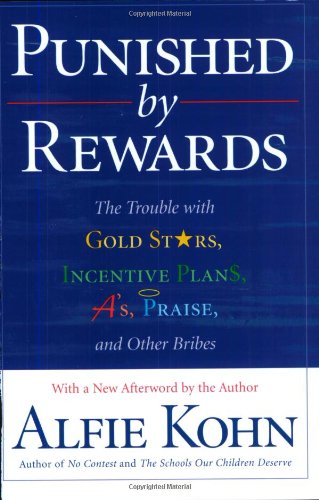
After I finished reading this article I can confidently answer the above question. Kohn clearly proves that it is more about the adult's need to say "Good job", rather than the actual benefit of the child. When thinking on the matter, saying "Good job" after a student accomplishes something is a force of habit, your not aware of the phrase, until your made aware. The two words are said SO often in a child's school environment and home life, that the meaning behind them is lost. The convenience of it takes away from the actual accomplishment the student makes and has no long term benefit. Children are less likely to persist with difficult tasks and focus more on receiving praise, rather than actually doing well on the project set forth in front of them. Kohn even goes on to say that when these children become adults they will still seek approval, a pat on the back so to speak. Not only does it crush a child's confidence, but lessens interest on the activity. Which of course is the complete opposite of what a teacher's intentions are. With all these examples on how this simple phrase is a detriment to a child's learning, it begs the question, how do you praise a child for a "job well done", without out actually saying the words.
1. Say nothing
The praise might not be necessary.
2. Say what you saw.
State what you see the child doing, "You put your shoes on by yourself!", allowing their good behavior to be recognized. If the child shows a picture they drew, comment on an item in the picture with out any passing of judgment.
3. Talk less, ask more.
Ask questions on the process in which the student used to do their activity, teaching the children to become more excited about what they are doing.
And in conclusion, "The good news is you don't have to evaluate in order to encourage."
I have come to learn this as I have continued to observe in my ESL classroom at Charlotte Woods Elementary. While working with alphabet flashcards with the students at low reading levels, they look to me for the answers and it is so hard not to answer for them. However, I know if I do, then they will not actually be getting the learning experience because I will be telling them instead of them learning. Instead I use Collier's approach of using their first language (Spanish) in order to enhance their understanding of the English language. Once they are starting to grasp the concept it takes everything in my being not to have word vomit and say "good job", but I can control myself most times and say, "you did it." This not only shows my progress, but it recognizes the students progress as well.
With that being said no truer words, on the matter of "Good job!" political correctness, has been said. As a potential teacher and having read this article (and many others) it has shown me that what you say in your class can be everything to the children you are teaching. It is up to us to help shape and encourage the types of people that the children will be in the future and the importance of your words becomes so imperative.
No comments:
Post a Comment